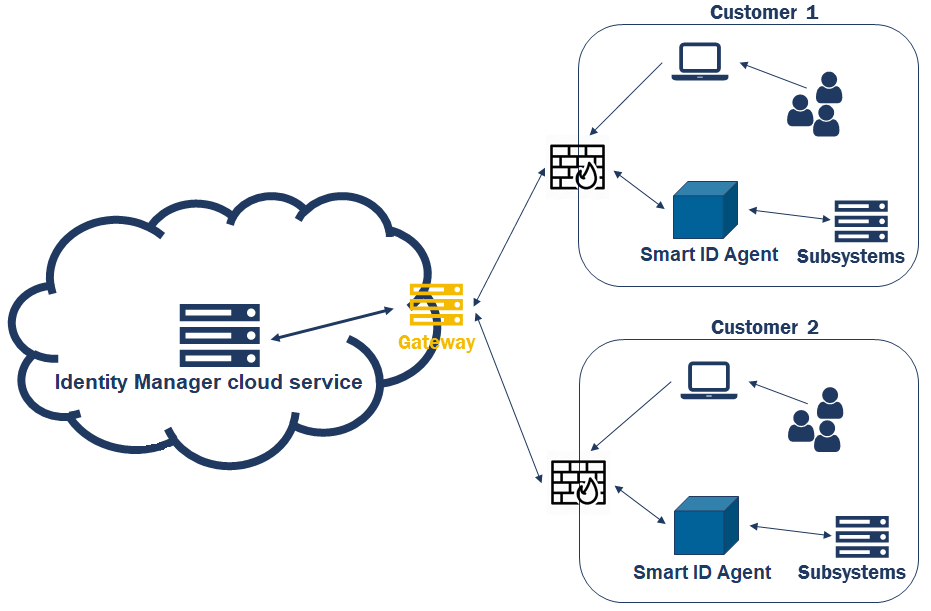This article is valid for Smart ID 20.06.1 and later.
When Smart ID Identity Manager is running in the cloud it does not have access to internal customer systems, like, for example, LDAP. It can not be guaranteed that a service in the customer's network can be accessed. To get access to customer systems, the Smart ID Agent (DataSyncProxy) is used.
The Smart ID Agent (DataSyncProxy) is a small Spring Boot application. It is placed and runs on a machine in the customers network environment. The machine on which the Smart ID Agent (DataSyncProxy) runs must have access to internal systems like LDAP. The Smart ID Agent (DataSyncProxy) connects with Identity Manager (in the cloud) with a normal http connection. The connection is held as long as the proxy is running. While the connection is held, Identity Manager (in the cloud) is able to send Server-Sent Events (SSE) to the Smart ID Agent (DataSyncProxy). The Smart ID Agent (DataSyncProxy) allows accessing a subsystem (search and export) in the same way as with any data source in a non-cloud installation of Identity Manager.
The picture illustrates how the Smart ID Agent (DataSyncProxy) is placed in the customer's network.
-
Customer 1 and Customer 2 symbolizes networks at two different customers that connect to the Identity Manager cloud service via the gateway.
-
When the user performs a search in Identity Manager, the Smart ID Agent (DataSyncProxy) provides a data connection to the user’s subsystem and transfers the search result data to Identity Manager. Subsystems could be the LDAP, an external JDBC database, a SCIM data source, etc.
-
The Smart ID Agent (DataSyncProxy) also allows the export of data from Identity Manager to the user’s subsystem.

Read more about how to enable and configure Smart ID Agent (DataSyncProxy) here: Access local services from Identity Manager in the cloud.
